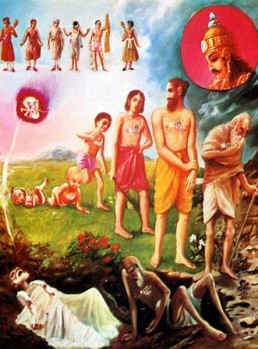Swami Chinmayananda Commentary
It is natural, in conversation, that we do not directly give our wise conclusions upon “the do’s and dont’s” of life, without giving the logic of our thoughts leading to our conclusions. Without preparing our friend’s mind to perceive the logic of these conclusions, we dare not declare to him any truth, however divinely acceptable the declarations are. Arjuna has been told earlier all the necessary arguments, and here in the stanza, Krishna re-asserts the same proposition: “Life in self-control alone is life worth living, if we demand from it anything more than tears, sobs, sighs and groans.”
He alone is a man of Wisdom, rooted in joy and bliss, who has completely restrained all his senses from their wild roamings among their sense-objects.
“BY DESTROYING THE SENSE ORGANS ROAMING IN THE SENSE-OBJECTS,” it does not mean that a man of Self-development should destroy his capacities for perception of the world outside; nor does it mean that he is one who has been rendered incapable of enjoying life. Sense-debility is no sign of better-knowledge. It is only meant here that the sense-objects filtering through the five archways of knowledge will not, in a Perfect man, flood his mind to bring chaos and destruction of his established inner peace and tranquillity.
The ordinary individual, in his ego-centric existence, becomes victimized by the sense-organs, while he who has conquered the ego and has transcended his matter-identifications, comes to live in freedom and perfect control over the tyrannical sense organs.
IN ORDER TO MAKE IT CLEAR, THE LORD PROCEEDS:
Adi Sankara Commentary
Since the evils arising from the activities of the organs have been described, tasmat, therefore; mahabaho, O mighty-armed one; tasya, his, the sannyasin’s; prajna, wisdom; pratisthita, becomes established; yasya, whose; indriyani, organs; sarvasah, in all their varieties, differentiated as mind etc.; nigrhitani, are withdrawn; indriya-arthebhyah, from their objects such as sound etc. In the case of a man of steady wisdom in whom has arisen discriminating knowledge, those which are these ordinary and Vedic dealings cease on the eradication of ignorance, they being effects of ignorance. And ignorance ceases because it is opposed to Knowledge. For clarifying this idea, the Lord says:
The Bhagavad Gita with the commentary of Sri Sankaracharya – Translated by Alladi Mahadeva Sastry
Holy Geeta – Commentary by Swami Chinmayananda
The Bhagavad Gita by Eknath Easwaran – Best selling translation of the Bhagavad Gita
The Bhagavad Gita – Translation and Commentary by Swami Sivananda
Bhagavad Gita – Translation and Commentary by Bhaktivedanta Swami Prabupadha
Srimad Bhagavad Gita Chapter 2 – Verse 68 – 2.68 tasmad yasya – All Bhagavad Gita (Geeta) Verses in Sanskrit, English, Transliteration, Word Meaning, Translation, Audio, Shankara Bhashya, Adi Sankaracharya Commentary and Links to Videos by Swami Chinmayananda and others – 2-68

